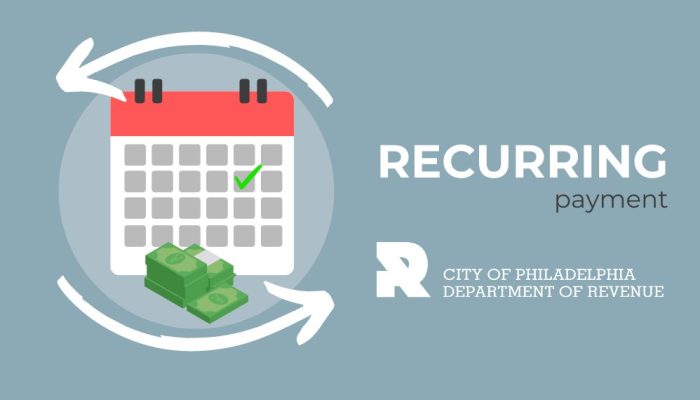UPDATE (November 2, 2021):The City’s new tax filing and payment website, the Philadelphia Tax Center, is now live. From now on, please complete online returns and payments for most City business taxes on the new website. Check out our online tax center guide for help getting started and answers to common questions.
Changes in technology and the economy –as well as policy reforms at the federal and local level– sometimes compel the Department of Revenue to review its business tax policies and procedures.
Jon Liss is a Senior Policy Analyst at the Department of Revenue, with over 30 years of state and local tax experience. We asked him what’s new when it comes to paying and filing business taxes in Philadelphia.
Is it mandatory to file and pay business taxes electronically?
The Department of Revenue requires a few taxes to be filed and paid electronically. The Philadelphia Beverage and Use & Occupancy taxes must be filed and paid electronically. Also, taxpayers who owe $5,000 or more in Business Income and Receipts Tax (BIRT) or Net Profits Tax (NPT) must pay those taxes electronically.
We nevertheless encourage businesses to file and pay all their taxes electronically, even when it’s not mandatory. It reduces costs and errors for everyone, plus it’s easy and secure. You can file and pay City taxes on our eFile / ePay website. The City also participates in the IRS Modernized e-Filing (MeF) Program. Our website includes a list of all the approved MeF software.
When should a business submit a tax account Change Form?
You must complete and submit a tax account Change Form when you:
- Sell your business
- Close your business
- Cancel a tax account
- Change your business address
Do non-residents who telecommute owe Philadelphia’s Wage Tax?
Philadelphia uses a “requirement of employment” standard to determine if non-resident employees are exempt from the Wage Tax. This applies to all non-residents whose employer’s base of operations is Philadelphia. A non-resident is exempt from the Wage Tax only when the employer requires him or her to perform a job outside Philadelphia.
Therefore, a non-resident employee who works from home for the sake of convenience is not exempt from the Wage Tax –even with the employer’s authorization.
If a commercial/multi-family property owner appealed the 2019 property assessment, is the owner required to pay Real Estate Tax while the appeal is pending?
Recent legislation allows a property owner with a pending 2019 appeal to pay property taxes based on the 2018 assessment.
When the case is resolved, the property owner will receive a new tax bill with an amount due, or a credit. If they owe additional Real Estate Taxes to the City and the School District, they will have 30 days to pay the bill before owing additional costs.
What is the City’s response to the U.S. Supreme Court’s Wayfair decision regarding economic nexus?
Philadelphia has amended its BIRT nexus standard. The change applies to tax years beginning January 1, 2019. Even if a business has no physical presence in the city, it is subject to BIRT if it generated at least $100,000 in Philadelphia gross receipts during any 12-month period ending in the current tax year.
The previous “Active Presence” nexus standard for BIRT continues to be in effect for tax years before 2019.
In Wayfair, the U.S. Supreme Court overturned the long-standing physical presence nexus standard for sales/use tax collection. In its place, the Court held that directing economic activity in a state is enough to create nexus.
Does Philadelphia follow the corporate tax provisions of the Tax Cuts and Jobs Act (TCJA)?
Philadelphia largely follows the federal Internal Revenue Code, so many of the TCJA corporate provisions impact Philadelphia business tax filers. The Department of Revenue has issued several Advisory Notices concerning our position on various TCJA provisions. Some provisions of the TCJA are still under review.
However, Philadelphia decouples from the Internal Revenue Code with respect to the net operating loss deduction, dividends received deduction, and bonus depreciation deduction. We’ve published all the TCJA-related Advisory Notices on our website, alongside our BIRT regulations.
Photo credit: Joseph Bamat




